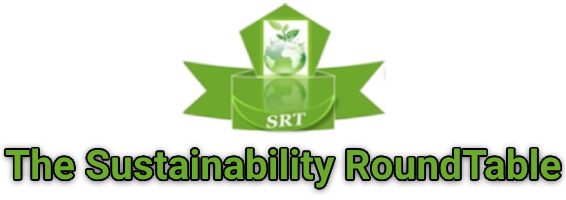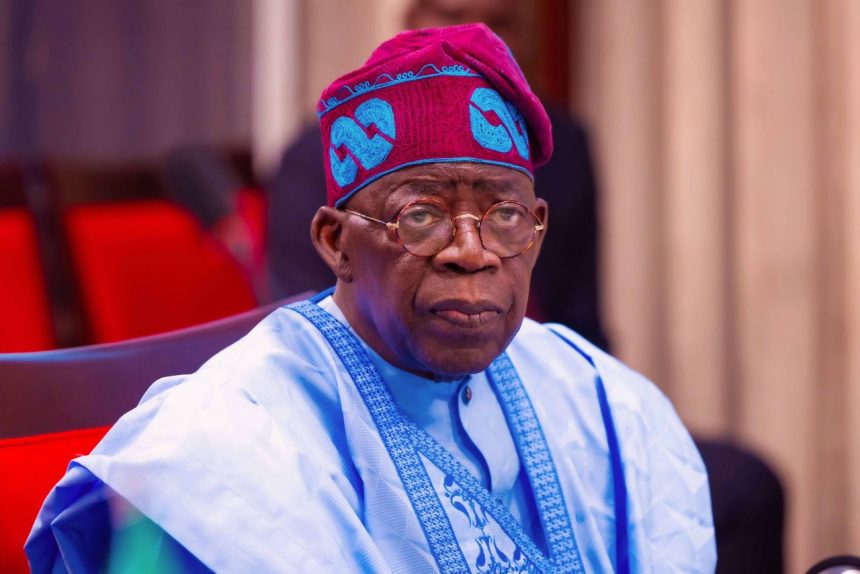Nigeria at a Crossroads: Evaluating the Sustainability of President Tinubu’s ‘Renewed Hope Agenda’ in the Absence of a Long-Term Development Plan
By: Eric Adile
Nigeria, often referred to as the “Giant of Africa,” stands at a critical juncture. The country’s vast natural resources, youthful population, and strategic location present boundless potential. Yet, decades of underdevelopment, mismanagement, and policy inconsistency have left it grappling with deep economic, social, and environmental crises. Under the leadership of President Bola Ahmed Tinubu, the “Renewed Hope Agenda” seeks to chart a new course for Nigeria, promising sweeping reforms in various sectors such as the economy, agriculture, energy, and national security. However, this agenda faces a significant challenge—its ambitious vision is not supported by a coherent, long-term national development plan.
This investigative report will analyze the current state of Nigeria’s economic, social, and environmental sustainability, examine the key provisions of the Renewed Hope Agenda, and assess its appropriateness and effectiveness in the absence of a structured medium- or long-term development framework. Nigeria’s increasing economic and social hardship, alongside the urgent need for a detailed implementation pathway, underscores the critical nature of this inquiry.
Nigeria’s Current Economic Sustainability: A Bleak Reality
Nigeria’s economic situation is a paradox. While it is Africa’s largest economy by GDP, it also ranks among the poorest in terms of per capita income. According to the National Bureau of Statistics (NBS), inflation rose to 25.8% in 2023, with food inflation soaring past 30%. The naira has been in free fall, losing significant value against major global currencies. Meanwhile, unemployment, particularly among the youth, remains high, with millions of Nigerians living below the poverty line.
The Renewed Hope Agenda outlines an ambitious plan to “reform the economy to deliver sustained inclusive growth.” The agenda promises to create jobs, foster industrialization, and boost local manufacturing to reduce Nigeria’s dependence on imports. However, without a structured long-term development plan, these goals may prove elusive.
Key Issues with Economic Sustainability
- Rising Inflation and Devaluation of the Naira: One of the primary challenges facing Nigeria is the persistent inflation driven by currency devaluation and a heavy reliance on imported goods. The Renewed Hope Agenda’s focus on local production is commendable, but without addressing the structural problems of the economy—such as poor infrastructure, power shortages, and an over-reliance on oil revenue—these efforts may not significantly alter Nigeria’s economic trajectory.
- Unemployment and Job Creation: The agenda promises to create jobs, especially for the youth, but there is no clear implementation pathway or strategy for achieving this. The manufacturing sector, which the agenda highlights as a potential job creator, currently contributes less than 10% to the GDP. Without long-term policies that foster industrial growth, innovation, and technology-driven entrepreneurship, it is unlikely that Nigeria’s unemployment crisis will abate.
- Agriculture and Food Security: The Renewed Hope Agenda emphasizes boosting agriculture to achieve food security. Agriculture is a critical sector, employing over 35% of Nigeria’s workforce. However, decades of neglect, inadequate funding, and poor infrastructure have left the sector struggling. While the agenda acknowledges the importance of agriculture, it lacks detailed plans for addressing the challenges facing farmers, such as access to credit, modern farming techniques, and climate change adaptation.
Social Sustainability: A Nation in Distress
Nigeria’s social sustainability is perhaps one of its greatest challenges. The country is home to one of the world’s largest populations of people living in extreme poverty. The social divide between the wealthy elite and the impoverished masses is stark, with limited access to quality education, healthcare, and social services exacerbating the situation.
Key Social Issues
- Education and Healthcare Deficits: The Renewed Hope Agenda acknowledges the importance of education and healthcare as pillars of development, yet it provides little in the way of concrete plans to improve these critical sectors. Nigeria has one of the world’s largest out-of-school populations, with over 10 million children not receiving formal education. The healthcare system is also in disarray, plagued by underfunding, brain drain, and a lack of essential services.
The absence of a long-term strategy for developing human capital is a glaring omission in the Renewed Hope Agenda. Short-term fixes, such as budgetary increases or new policy pronouncements, are unlikely to address the deep-seated structural problems that have plagued Nigeria’s education and healthcare systems for decades.
- Social Investment and Poverty Reduction: The Renewed Hope Agenda pledges to improve social investment, promising to provide economic opportunities for the poorest and most vulnerable Nigerians. However, these initiatives appear fragmented and lack measurable indicators of success. Social investment programs in Nigeria, such as conditional cash transfers and school feeding programs, have been hindered by corruption, mismanagement, and inefficiency. Without a robust long-term plan and a clear mechanism for measuring the effectiveness of social investment efforts, it is difficult to see how the Renewed Hope Agenda will significantly reduce poverty or improve living standards.
- Security and Social Stability: Insecurity remains a major obstacle to Nigeria’s social sustainability. The country is plagued by terrorism, banditry, and kidnapping, particularly in the northern regions. The Renewed Hope Agenda’s emphasis on strengthening national security for peace and prosperity is a welcome development, but it lacks the detailed strategy needed to combat these threats. The absence of a long-term security plan to address the root causes of instability—such as poverty, lack of education, and economic inequality—undermines the agenda’s promise of lasting peace.
Environmental Sustainability: An Urgent Crisis Ignored
Nigeria’s environmental sustainability is increasingly under threat. The country’s dependence on oil has led to widespread environmental degradation, particularly in the Niger Delta, where oil spills have devastated ecosystems and displaced communities. In addition, deforestation, desertification, and water scarcity pose significant challenges to Nigeria’s future.
Key Environmental Issues
- Climate Change: Nigeria is highly vulnerable to the effects of climate change, including rising temperatures, erratic rainfall, and flooding. Despite this, the Renewed Hope Agenda fails to adequately address climate change or environmental sustainability. While it acknowledges the need to unlock natural resources for sustainable development, it lacks a clear plan for transitioning to renewable energy or mitigating the effects of environmental degradation.
- Energy Crisis: Nigeria’s energy sector remains one of its greatest challenges. Despite being a leading oil producer, Nigeria has been unable to provide consistent power to its citizens, with over 85 million Nigerians lacking access to electricity. The Renewed Hope Agenda promises to generate and distribute sufficient, affordable electricity, yet it offers no clear pathway for achieving this. Furthermore, the focus on exploiting oil and gas resources without a corresponding commitment to renewable energy raises concerns about the sustainability of these plans in a rapidly changing global energy landscape.
- Deforestation and Environmental Degradation: Nigeria has one of the highest rates of deforestation in the world, driven by illegal logging, agriculture, and urban expansion. Environmental degradation is particularly acute in rural areas, where poor land management practices and a lack of enforcement have contributed to soil erosion and desertification. The Renewed Hope Agenda does not provide any clear strategy for addressing these pressing environmental challenges.
The Inappropriateness of the Renewed Hope Agenda in the Absence of a Long-Term Development Plan
One of the most significant criticisms of the Renewed Hope Agenda is its lack of a long-term development plan to guide the implementation of its key priorities. While the agenda presents a vision for reforming the economy, improving national security, and promoting social investment, it is unclear how these goals will be achieved without a structured, medium- to long-term framework.
Lack of Indicators and Measurement Tools
The Renewed Hope Agenda does not provide clear indicators for measuring the success of its initiatives. For instance, how will the government determine whether it has successfully delivered “sustained inclusive growth”? Without specific targets, timelines, and mechanisms for monitoring progress, it will be difficult to evaluate whether the agenda is delivering on its promises.
Policy Inconsistency and Short-Termism
Nigeria’s history of policy inconsistency is well-documented. Many previous administrations have introduced ambitious agendas that ultimately failed due to poor implementation, lack of political will, and a focus on short-term gains. The Renewed Hope Agenda risks falling into the same trap. For example, while the agenda emphasizes industrialization and local manufacturing, it does not address the underlying issues—such as inadequate power supply and poor infrastructure—that have hindered industrial growth in the past.
No Defined Implementation Pathway
One of the major weaknesses of the Renewed Hope Agenda is the lack of a defined implementation pathway. While the agenda outlines broad goals, it does not provide a detailed roadmap for how these goals will be achieved. For instance, the promise to improve governance for effective service delivery is vague and lacks concrete steps for how governance reforms will be implemented.
In contrast, successful development plans in other countries have been anchored by long-term strategies that provide clear direction and continuity. For instance, Rwanda’s Vision 2020 and Ethiopia’s Growth and Transformation Plan have been instrumental in driving sustainable development by setting clear targets, timelines, and monitoring mechanisms.
Conclusion
Nigeria stands at a pivotal moment in its history. The Renewed Hope Agenda offers a vision for reforming the economy, improving national security, and promoting social investment, but its potential impact is limited by the absence of a coherent long-term development plan. Without a structured framework to guide the implementation of these initiatives, the agenda risks becoming yet another set of unfulfilled promises.
Nigeria’s growing economic and social hardship, coupled with the urgent need for environmental sustainability, demands more than short-term fixes. The country needs a comprehensive, forward-thinking strategy that addresses the root causes of its challenges and sets it on a path to long-term prosperity. Without this, the Renewed Hope Agenda may fall short of delivering the sustainable future that Nigeria so desperately needs.
Eric Adile Iroajugh is the Executive Vice Chairman, Alikwomobu Center for Sustainability and Participatory Development- He can be reached on 08188675284 or princadile1@gmail.com


Leave a Reply